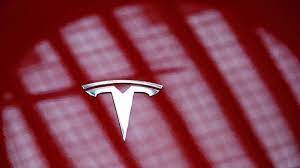
Tesla is cutting jobs globally, including in sales, technology, and engineering. The automaker's two largest markets are the United States and China, accoridng to reports quoting sources.
In an internal memo obtained by Reuters on Monday, CEO Elon Musk informed employees that the business is letting go of over 10% of its global personnel due to declining sales and a growing competition in the price of electric vehicles.
According to one source, significant layoffs were implemented immediately at several U.S.-based service centres, mostly affecting technicians and sales employees. The insider claimed that another site fired every member of the front desk crew.
A spreadsheet listing more than 140 employees—mostly engineers—who had been laid off and were looking for new employment was shared on LinkedIn by a Tesla project manager in California.
Two people, one of whom claimed that over 10% of Tesla's China sales team members were losing their employment, said the company was informing its employees that they were being let go.
According to a third source, Tesla plans to let off only a limited number of employees in Shanghai, the location of its largest plant—roughly "several dozen" personnel.
On Tuesday, Tesla's stock dropped 4% to $154.82. Monday's close saw a 5.6% decrease.
"The sweeping layoffs ... should now leave no doubt that the decline in deliveries has been a function of lower demand and not supply," J.P.Morgan analysts stated. They added that this "has far-reaching implications for the hypergrowth narrative still embedded in Tesla's share price" .
Requests for comment from Tesla's China branch and U.S. headquarters were not immediately answered. Since they were not allowed to interact with the media, all of the sources declined to be identified.
Requests for feedback from the municipal governments in Beijing and Shanghai were not immediately answered.
Tesla Germany denied claims made by German media that 3,000 of the company's approximately 12,000 employees had been let off, stating that it was assessing the best way to carry out Musk's directives at the factory.
In an email to Reuters on Tuesday, Tesla Germany stated, "We will pursue the measure for Gigafactory Berlin-Brandenburg against the background of all labour law and co-determination requirements, bringing in the works council," adding that no workers had yet been informed.
The German union IG Metall claimed on Monday that Tesla had emailed every employee without first notifying or consulting the works council, as is normal in Germany.
Although terminating employees is strictly prohibited by German labour law, a person with knowledge of the situation said that some 1,000 employees at the plant are on temporary contracts, making them more susceptible to termination.
Sales of Tesla are slowing down in the US, and the company is facing significant investment expenses for new models and artificial intelligence in addition to growing competition in China where it is engaged in a price war with rivals headed by BYD.
For the first time in over four years, there was a decline in global car deliveries in the first quarter as price reductions did not increase demand.
(Source:www.business-standard.com)
In an internal memo obtained by Reuters on Monday, CEO Elon Musk informed employees that the business is letting go of over 10% of its global personnel due to declining sales and a growing competition in the price of electric vehicles.
According to one source, significant layoffs were implemented immediately at several U.S.-based service centres, mostly affecting technicians and sales employees. The insider claimed that another site fired every member of the front desk crew.
A spreadsheet listing more than 140 employees—mostly engineers—who had been laid off and were looking for new employment was shared on LinkedIn by a Tesla project manager in California.
Two people, one of whom claimed that over 10% of Tesla's China sales team members were losing their employment, said the company was informing its employees that they were being let go.
According to a third source, Tesla plans to let off only a limited number of employees in Shanghai, the location of its largest plant—roughly "several dozen" personnel.
On Tuesday, Tesla's stock dropped 4% to $154.82. Monday's close saw a 5.6% decrease.
"The sweeping layoffs ... should now leave no doubt that the decline in deliveries has been a function of lower demand and not supply," J.P.Morgan analysts stated. They added that this "has far-reaching implications for the hypergrowth narrative still embedded in Tesla's share price" .
Requests for comment from Tesla's China branch and U.S. headquarters were not immediately answered. Since they were not allowed to interact with the media, all of the sources declined to be identified.
Requests for feedback from the municipal governments in Beijing and Shanghai were not immediately answered.
Tesla Germany denied claims made by German media that 3,000 of the company's approximately 12,000 employees had been let off, stating that it was assessing the best way to carry out Musk's directives at the factory.
In an email to Reuters on Tuesday, Tesla Germany stated, "We will pursue the measure for Gigafactory Berlin-Brandenburg against the background of all labour law and co-determination requirements, bringing in the works council," adding that no workers had yet been informed.
The German union IG Metall claimed on Monday that Tesla had emailed every employee without first notifying or consulting the works council, as is normal in Germany.
Although terminating employees is strictly prohibited by German labour law, a person with knowledge of the situation said that some 1,000 employees at the plant are on temporary contracts, making them more susceptible to termination.
Sales of Tesla are slowing down in the US, and the company is facing significant investment expenses for new models and artificial intelligence in addition to growing competition in China where it is engaged in a price war with rivals headed by BYD.
For the first time in over four years, there was a decline in global car deliveries in the first quarter as price reductions did not increase demand.
(Source:www.business-standard.com)














